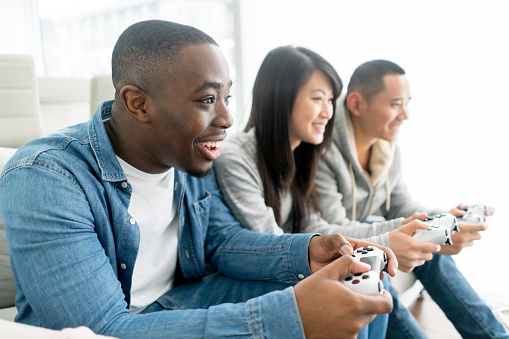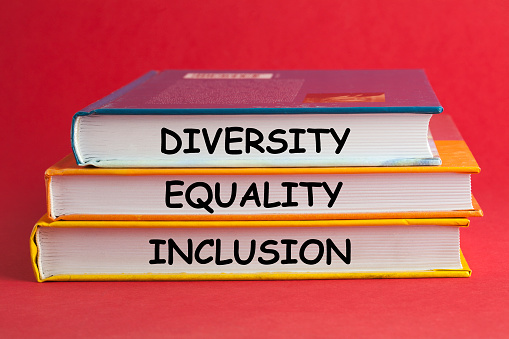Inequality and discrimination continue to affect millions globally. Achieving true equality requires a conscious and collaborative effort by all social citizens. Corporations and businesses have a critical role in promoting equality, fairness, inclusivity, and prosperity. Gaming is now one of the essential mediums for expanding equality and justice.
Gaming is a way to make friends, build communities, and share experiences with others. It’s also a way to develop skills and an outlet for creativity, problem-solving, and learning new skills.
The gaming industry will generate more than $208.60 billion in revenue in 2022. Moreover, the industry’s revenue will reach nearly $300 billion by 2025. As a result, the gaming industry and game developers thus have a crucial role in enhancing inclusivity, equality, and fairness.
The gaming industry can contribute to universal fairness and equality in several ways.
Dealing With CyberBullying in Gaming and Chat Rooms
Several game developers have realized the potential of gaming for social change. They are using games to bring awareness to cyberbullying, racism, and sexism. Gaming and chat rooms are places where people can freely express themselves, but they also have the potential to be toxic.
Cyberbullying is becoming a common occurrence in gaming and chat rooms. The effects of cyberbullying can significantly impact victims, including depression, anxiety, loneliness, low self-esteem, and other mental health issues.
The gaming industry has been dealing with cyberbullying for years. One of the most famous cases involves Tyler Clementi, who committed suicide after being cyberbullied by his boyfriend’s roommate after they found out that he was gay. The tragedy prompted many companies to take action to prevent similar tragedies from occurring in their games and chat rooms.
Game Characters Embrace Equality and Diversity
Game characters are not just a way to make money but a way to make the world a better place. People have criticized the gaming industry for being sexist, racist, and homophobic. But that is changing. The gaming community is now embracing equality and diversity.
Today’s most popular games have characters that look like us, talk like us, and act like us. But, of course, they are not perfect but similar to us. As a result, many companies are now committing resources toward creating games that promote equality and diversity among their characters and players.
Gaming can contribute to universal fairness and equality by helping players learn about other cultures and traditions. In some games, characters come from different backgrounds or have different races. For example, in Pokémon Go, you can catch Pokémon from all over the world — including the United States, Europe, and Japan — which helps people learn about their neighbors’ cultures.
Games Aid in the Development of Emotional Intelligence and Attunement
Some games encourage players to be kinder to others or give them the tools they need to deal with cyberbullying themselves. For example, in Fortnite Battle Royale, players can access emotes (symbols) that express positive emotions like joy or sadness and negative emotions like anger or frustration.
Games help players learn how to interact with others by reading body language, facial expressions, tone of voice, and other cues. Players can thus quickly tell what someone else is feeling or thinking at any given time.
Learning from the Past
The gaming industry can become a more inclusive space by reflecting on its past mistakes, addressing them, and making changes in favor of equality, fairness, and inclusivity. In addition, the gaming industry can significantly support diversity, inclusion, and equality in its own right. For example, we’ve seen game characters embrace equality and change how people think about gender identity, race, and sexual orientation.
Historically, men were often portrayed as heroes, while women were portrayed in less favorable ways or even ignored altogether. However, some modern-day video games like Assassin’s Creed or Dragon Age go beyond traditional stereotypes by including female characters who are powerful and heroic. Some even give these characters equal power over male characters!
Diversity in Gaming Creates Realistic Games
Many game developers have included more diverse characters in their games. This involves gender representation – such as female characters – and racial representation – such as black characters or LGBT characters. These efforts should also teach players about equality and diversity before they become confused about it later.

Gaming can also help people who are disabled to experience the same sense of joy and excitement that others feel when they are playing a game. Game designers are morally obligated to create games that promote fairness and equality. Creating content that appeals to a diverse group ultimately benefits all.
Creating a Just Society is a Collective Responsibility
We are privileged to access the best real money slots, board games, and video games. However, we should not abuse technology but use it to create a just society. The gaming industry has a unique opportunity to champion universal fairness and equality. Gaming is a beautiful way for people to connect, learn and develop their skills. It can offer an opportunity for real-world learning that is impossible in the classroom.
